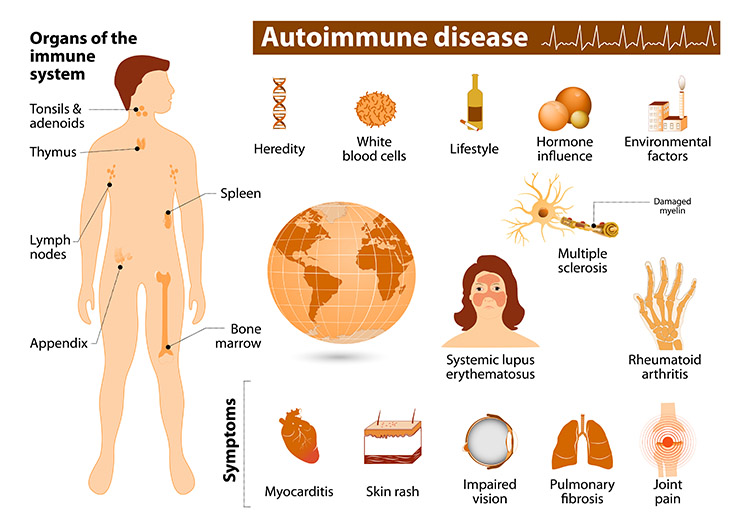Autoimmune diseases are a group of disorders characterized by the immune system mistakenly attacking the body's own tissues. This can lead to a wide range of symptoms and complications, depending on which tissues are affected. In this blog post, we'll provide a basic overview of autoimmune diseases, including their causes, common types, and potential treatments.
Causes:
The exact cause of autoimmune diseases is not fully understood, but it's believed to involve a combination of genetic and environmental factors. Certain genes may predispose individuals to autoimmune diseases, and environmental triggers such as infections, stress, or exposure to certain substances may also play a role. Additionally, some autoimmune diseases are more common in women than in men, suggesting that hormonal factors may contribute to their development.
Common Types:
There are over 80 different autoimmune diseases, each affecting different parts of the body. Some of the most common types include rheumatoid arthritis, lupus, multiple sclerosis, type 1 diabetes, and Hashimoto's thyroiditis. These diseases can affect various organs and tissues, including the joints, skin, brain, pancreas, and thyroid gland. Symptoms can range from mild to severe and may include fatigue, joint pain, skin rashes, difficulty concentrating, and more.
Diagnosis:
Diagnosing autoimmune diseases can be challenging because symptoms can vary widely and may mimic other conditions. Doctors typically use a combination of medical history, physical examination, blood tests, and imaging studies to make a diagnosis. In some cases, a biopsy of affected tissue may be necessary to confirm the diagnosis.
Treatment:
Treatment for autoimmune diseases aims to reduce inflammation, control symptoms, and prevent complications. This may involve medications such as corticosteroids, immunosuppressants, or biologic agents that target specific parts of the immune system. Lifestyle changes, such as stress management, regular exercise, and a healthy diet, may also help manage symptoms and improve overall well-being. In some cases, surgery may be necessary to repair damage caused by the disease.
Conclusion:
autoimmune diseases are complex disorders that can have a significant impact on quality of life. While there is currently no cure for these conditions, early diagnosis and appropriate treatment can help manage symptoms and prevent long-term complications. If you're experiencing symptoms of an autoimmune disease, it's important to see a healthcare provider for evaluation and guidance.
 Euro
Euro
 US Dollar
US Dollar


